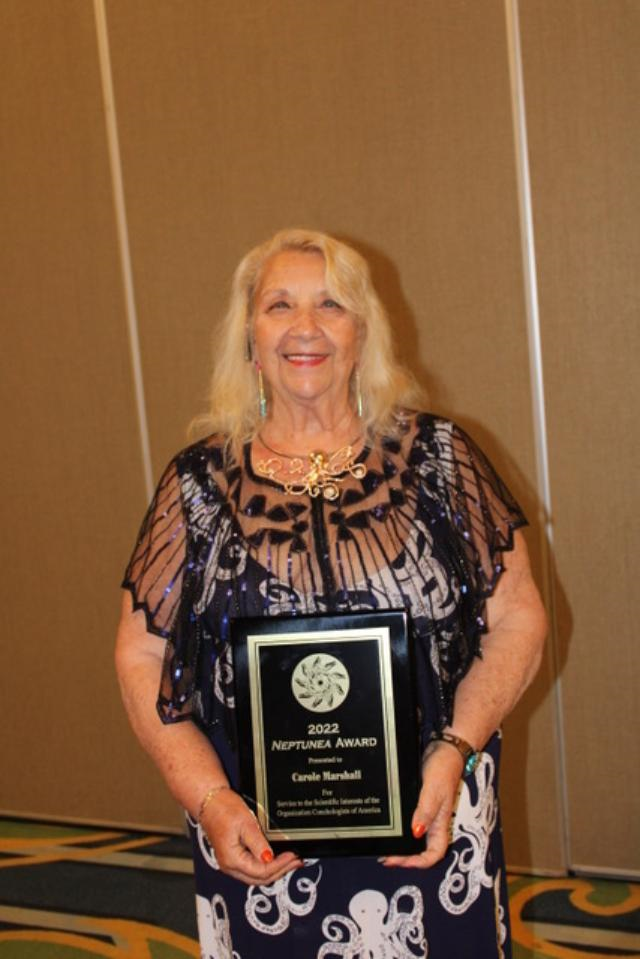Note: Carole will be joining us for dinner at 6 p.m. in the Aloft Hotel lobby. Carole spoke to us in March of 2023, please  plan to attend to welcome Carole back.
plan to attend to welcome Carole back.
Carole Marshall has been collecting shells since she was a young girl. Digging in the mud on the Rock River in Newville, Wisconsin she found snails she now knows are Viviperous georgiana. Her mother introduced her to sea shells after a stay on Fort Myers Beach and though it was not quite love at first sight, it became so, when she found her first shell on the beach. A baby’s ear, lying on the sand. Carole thought her mom had put it there for her to find.
Her quest for knowledge came with a share day at a club meeting in Schaumburg, Illinois. A lady who was a guest at the meeting asked if she knew of the Chicago Shell Club. Her surprised response was “There are clubs for people who collect shells?!!! That was in 1965 and her mom, dad and she all joined that club.
After planning a move to the West Palm Beach area in 1970, Carole wrote a fond goodbye to her Chicago friends and hoped there would be a shell club in Florida.
Within a few weeks, a note came from the Palm Beach County Shell Club letting her know they were there and looking forward to her becoming a member.
Carole would later become President of that club as well as President of two other shell clubs, the Broward Shell Club and the Treasure Coast Shell Club. Two special highlights of shell club participation and service was when she became an honorary member of the Broward Shell Club and when she was a recipient of the Neptunea award from the Conchologists of America in May of 2022.
Her main passion is Worldwide Scallops, having won many awards with her exhibits. Her second passion is collecting money both paper and coins, as well as exonumia, with shells depicted.
Mollusks have been used by man since the beginning of time. This program will explore a few of the ways mollusks are being used.
For the last 15 years, Carole has been writing a book about the seashells of the Lake Worth Lagoon. She complains the scientists keep moving the bar: changing names, genus and species, sometimes families and resurrecting old names and synonymizing others. She really hopes to finish this this year.